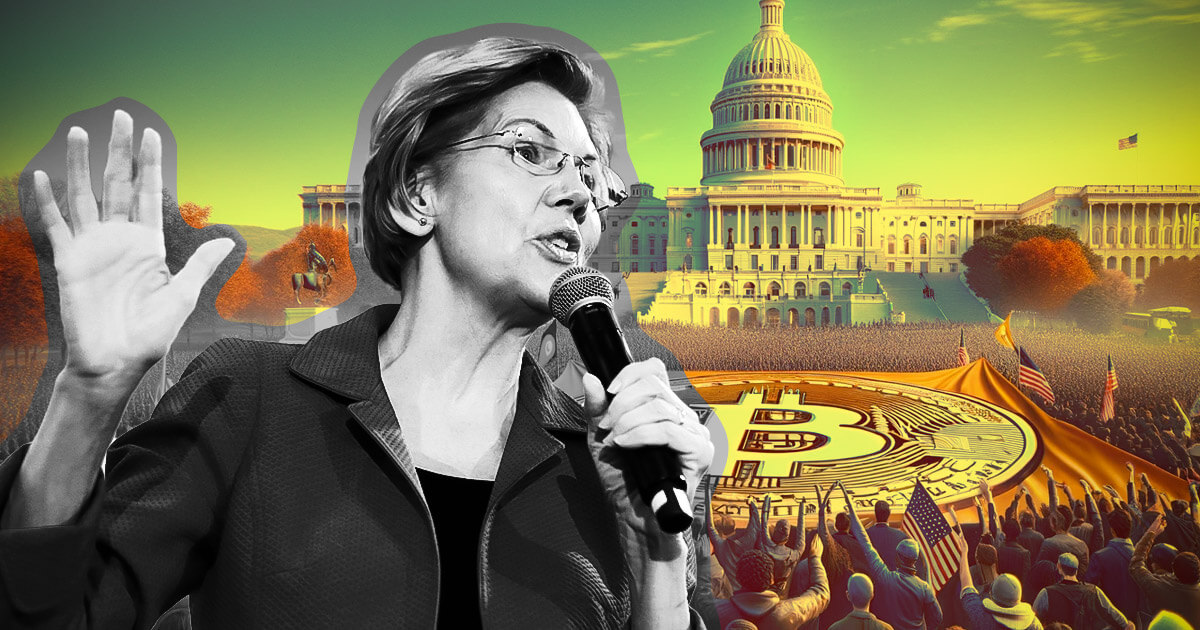
Senator Elizabeth Warren expressed his willingness to engage the crypto industry if industry players adhere to regulatory standards similar to those in the traditional financial sector.
In a Bloomberg interview on February 27, Warren said:
“I want to work with the industry, but what I don’t understand is why the industry seems to say that they can only survive if there is enough space for the drug traffickers and the human traffickers.
Oh and the terrorist, and the ransomware scammer, and the consumer scammers, and the rogue states, North Korea financing about half of its nuclear missile program with crypto, that should all be left open.
Warren’s stance on crypto has faced sharp criticism from stakeholders within the fast-growing industry, who argue that her policies encourage innovation abroad.
Notably, a prominent pro-crypto attorney challenging her Senate seat, John Deaton, accused Warren of engaging in a “politics of division and destruction.”
“Level playing field”
Senator Warren emphasized the need for uniform regulatory standards across the US financial landscape and urged the crypto sector to adhere to existing rules. The lawmaker noted that large traditional financial entities, including banks, credit unions and stock brokers, adhere to established regulations, while the crypto industry operates outside this framework.
“In our financial system, almost everyone follows the same rules. I’m talking about banks and credit unions and credit card companies, gold dealers and stock brokers. Private equity must now adhere to the rules. Precious metals dealers, Venmo, Western Union, but no crypto,” she explained
In advocating for regulatory parity, Warren highlighted the similarity in activities and associated risks between traditional and crypto finance. She emphasized the importance of enforcing existing laws rather than creating new regulations. She added:
“I just want a level playing field here when you’re part of the literally billion-dollar financial system. Please remember that my bill is not a regulatory bill. It is a bill about law enforcement.”
Her proposed legislation, the Digital Asset Anti-Money Laundering Act, aims to bring the crypto ecosystem more in line with the anti-money laundering frameworks that govern the traditional financial system.
Despite criticism from some corners of the crypto industry, the bill has received significant support from several US lawmakers.

